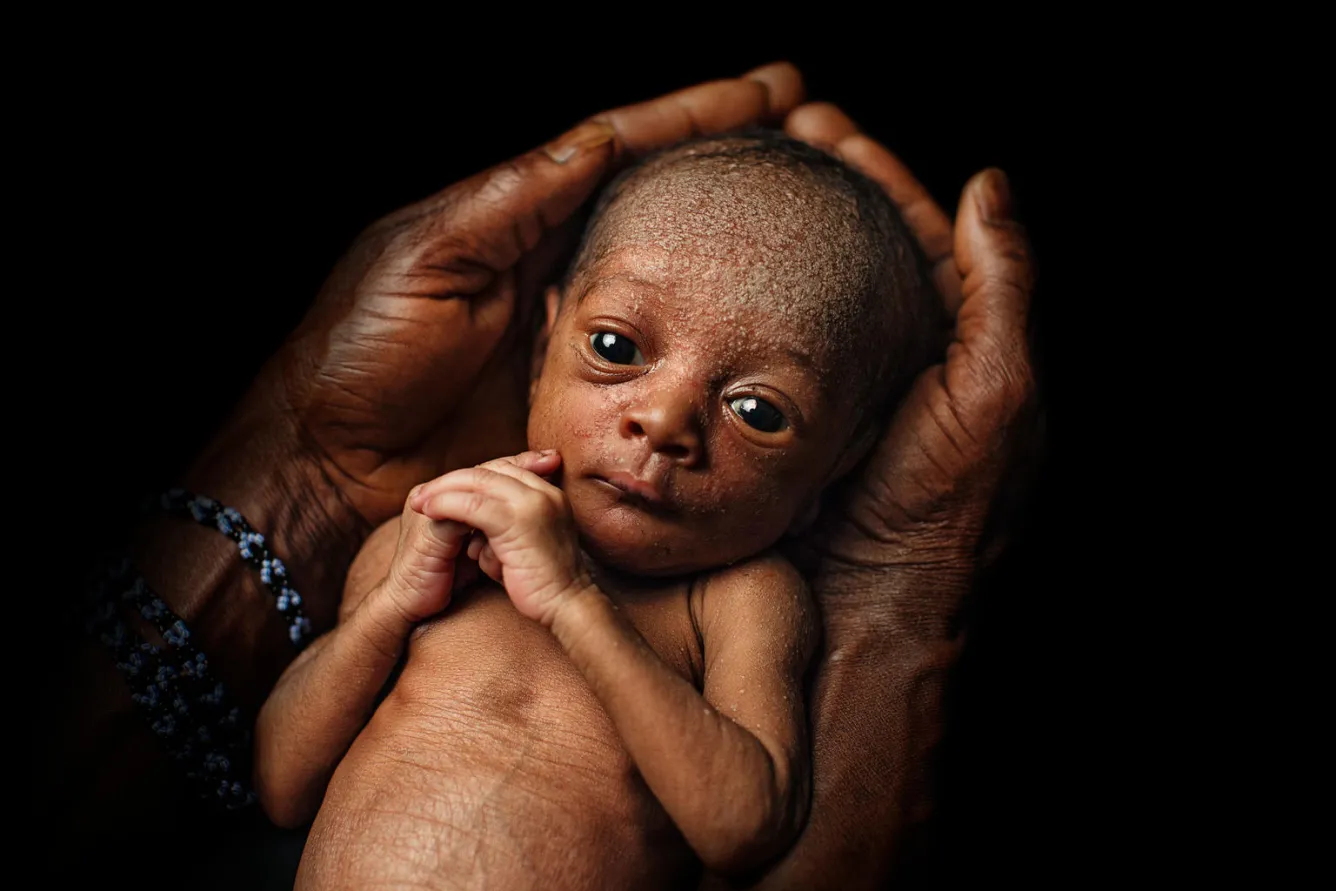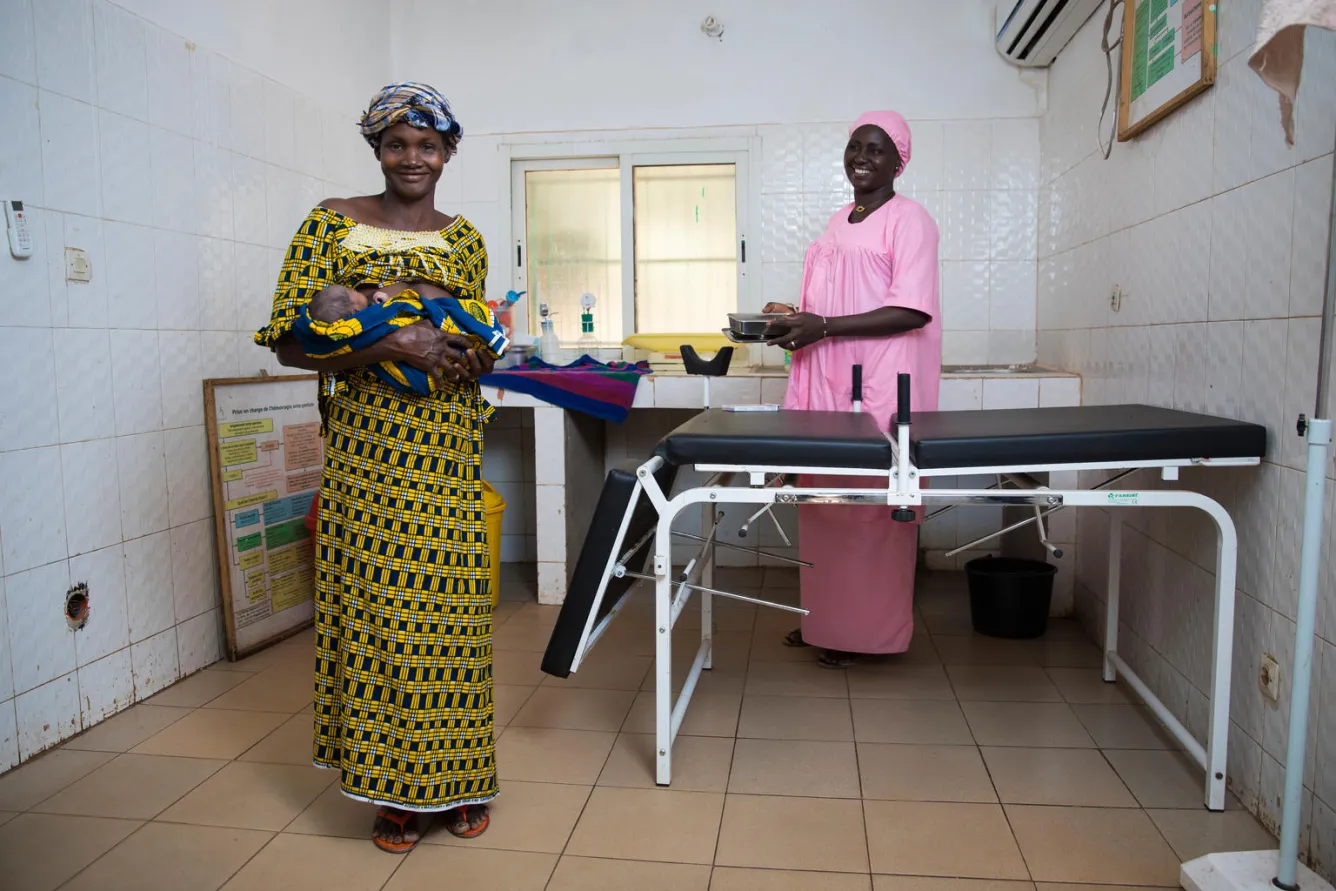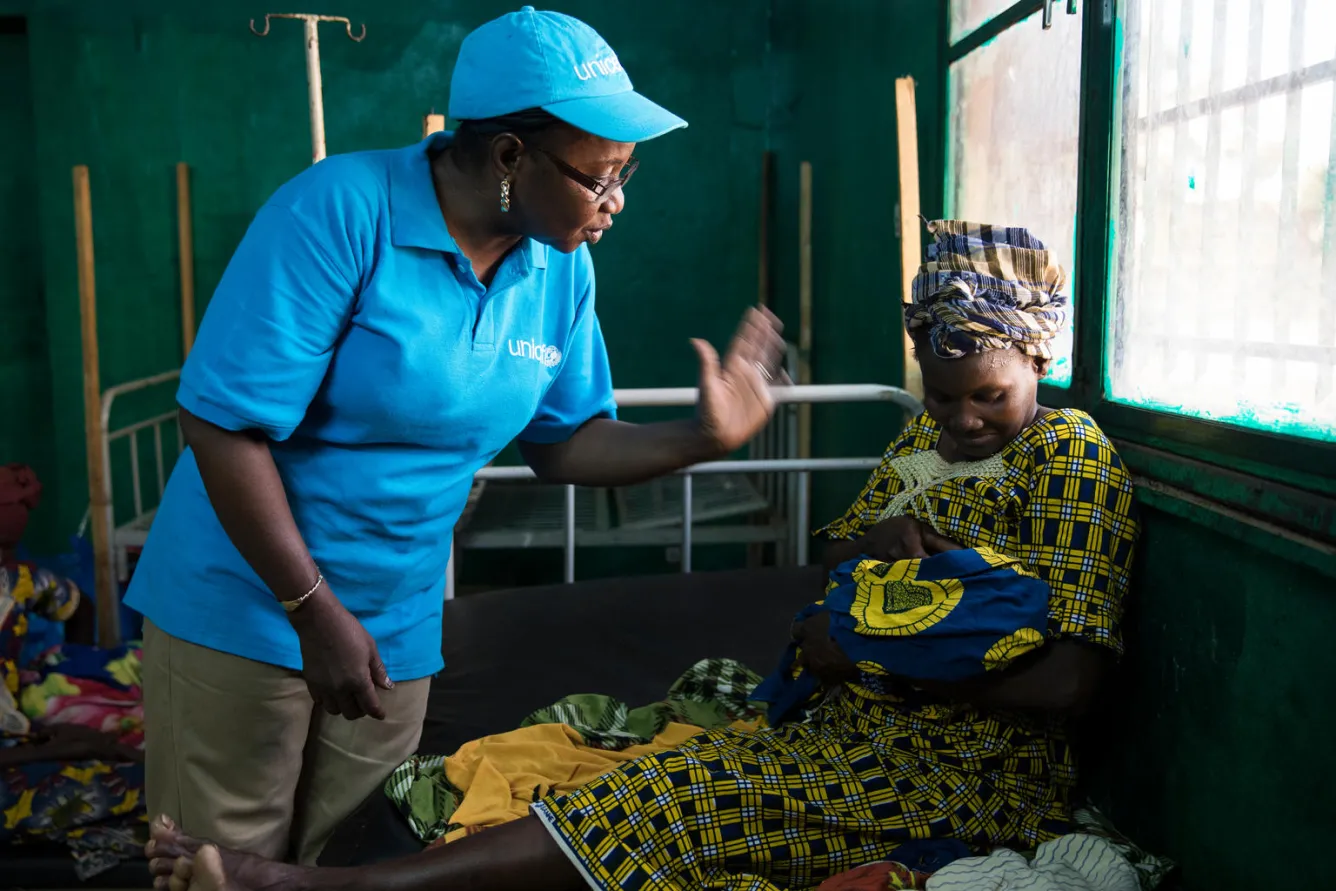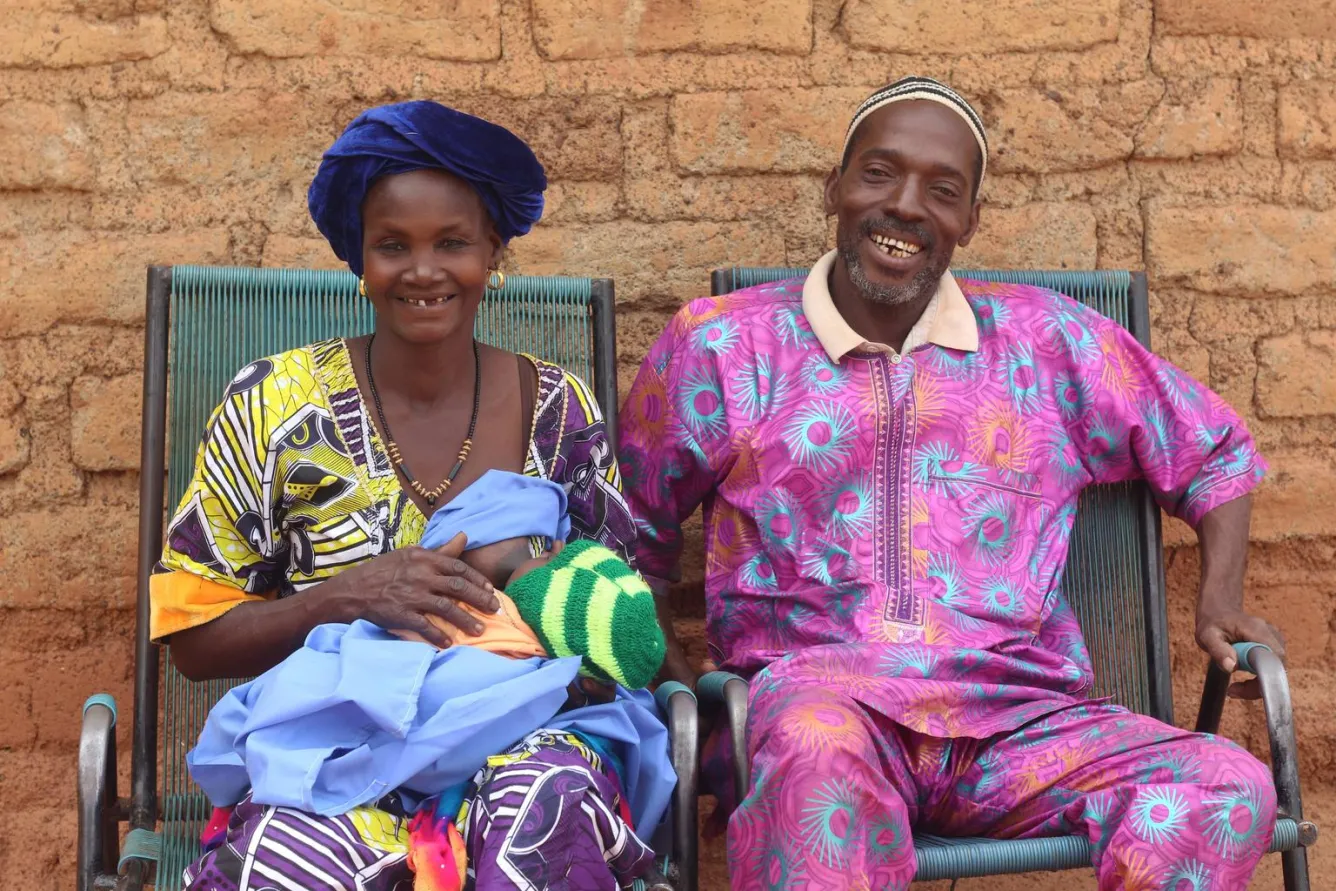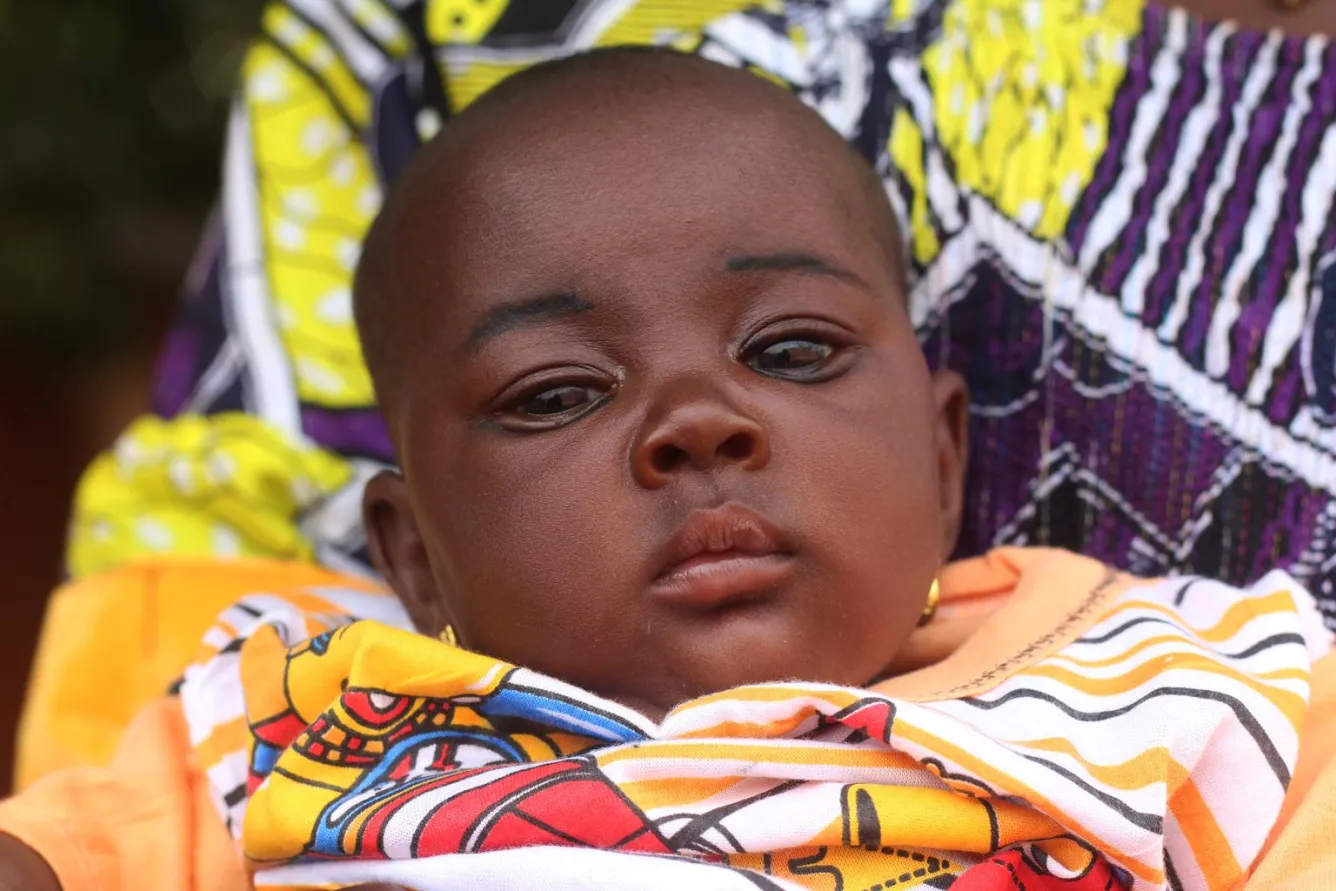For many people, the arrival of a healthy newborn child brings joy to parents, families and communities. But the arrival of a newborn who is underdeveloped, premature or sick often results in immediate worry, especially if the mother and baby don’t have access to proper healthcare.
UNICEF, with our Every Child Alive campaign, has a vision of a world in which every mother and newborn will survive and thrive. However, we cannot meet the health-related United Nations Sustainable Development Goals – and we cannot achieve universal health coverage or people-centred primary health care – without a strong and growing investment in mothers and newborns.
Women and babies around the world need your help.
[© UNICEF/UN0188867/Njiokiktjien VII Photo]
Meet Baby Nahawa from Sounkala, Mali
Baby Nahawa was born on February 26, 2018 to Kadidia Sangaré, 37 and her husband Bokolon Koné, 48 in Sounkala, Mali. She was one of the 30 million babies born every year who require specialized or intensive care; born a week premature, she weighed only 2.6 pounds at delivery.
Kadidia and Bokolon live in the village of Sounkala, Yiridougou commune. The family are rice and sesame farmers, as well as occasional artisanal goldminers. Nahawa is Kadidia’s 10th child; her first four babies were stillborn and another died after contracting tetanus because Kadidia was not vaccinated. She didn’t have any antenatal consultations during her four previous pregnancies, nor during her pregnancy with Nahawa, during which she would have been vaccinated against tetanus.
[© UNICEF/UN0188865/Njiokiktjien VII Photo]
Kangaroo Care: Skin-To-Skin Contact Keeps Premature Newborns Healthy and Safe
“The delivery didn’t take very long. I was in pain during the night, but it went fine… In the morning when they saw that the baby was small, they referred me to the district health centre. However, they didn’t know what to do either, so they sent me [to Reference Health Centre]” says Kadidia. “At the centre, they gave me three types of medicines to give to my baby. They also told me to keep my baby close to my breast because she was born too small. This way, she keeps warm and doesn’t fall sick. It’s my first time doing so. I also started breastfeeding her on the first day because giving her my milk helps her gain weight and strength.”
Learn more about the Every Child Alive campaign:
[© UNICEF/UN0198187/Njiokiktjien VII Photo]
Optimized Obstetric and Neonatal care – Key to Mothers’ and Newborns’ Happiness
“The emergency obstetric and neonatal care is a routine optimized for newborns’ and mothers’ survival,” says midwife Korotimi Dembelé. “You feel very happy for the mother and proud of yourself because you see a mama smiling so much, and you know it was you who did it, who helped bring the baby into the world.”
“Kadidia was very happy, but also felt worried because the baby was premature. She wasn’t sure it would survive. But I comforted her. The baby weighed 2.6 pounds, while normally she should weigh at least 5.5 pounds. I advised her on how to make sure she gains weight.”
[© UNICEF/UN0237233/Dicko]
Thanks to the support of staff at the Reference Health Centre, Nahawa is now a happy and healthy baby, who looks nothing like she did when she was first born.
More than 2.5 million babies died in 2017 from preventable causes, most notably –
- Prematurity
- Complications around the time of birth
- Infections
- Congenital conditions
Some died because the care they received was of poor quality; others because they received no healthcare at all.
Articles 6 and 24 of the Convention on the Rights of the Child (CRC) emphasize the right of every newborn to the highest attainable standard of health and healthcare. Unfortunately, these rights are not protected in far too many places. This is particularly true for newborns who are members of marginalized groups or living in crisis or conflict settings.
The challenges facing small and sick newborns and their families include scarce services, barriers to care-seeking (such as a lack of awareness, transportation or finances) and discrimination. To protect newborns, countries need to translate the CRC guidelines into domestic laws and regulations, and then enforce them.
[© UNICEF/UN0237237/Dicko]


